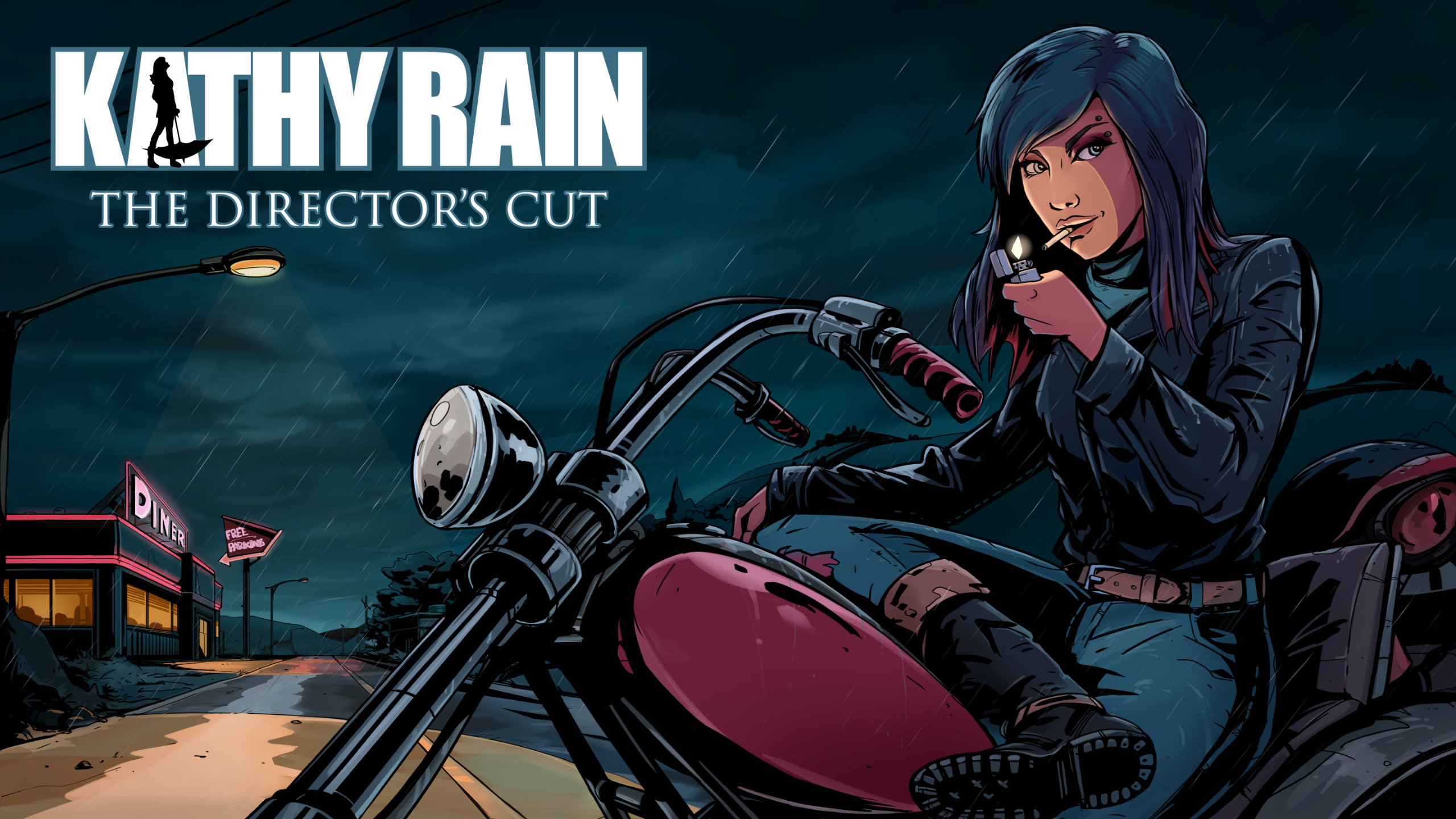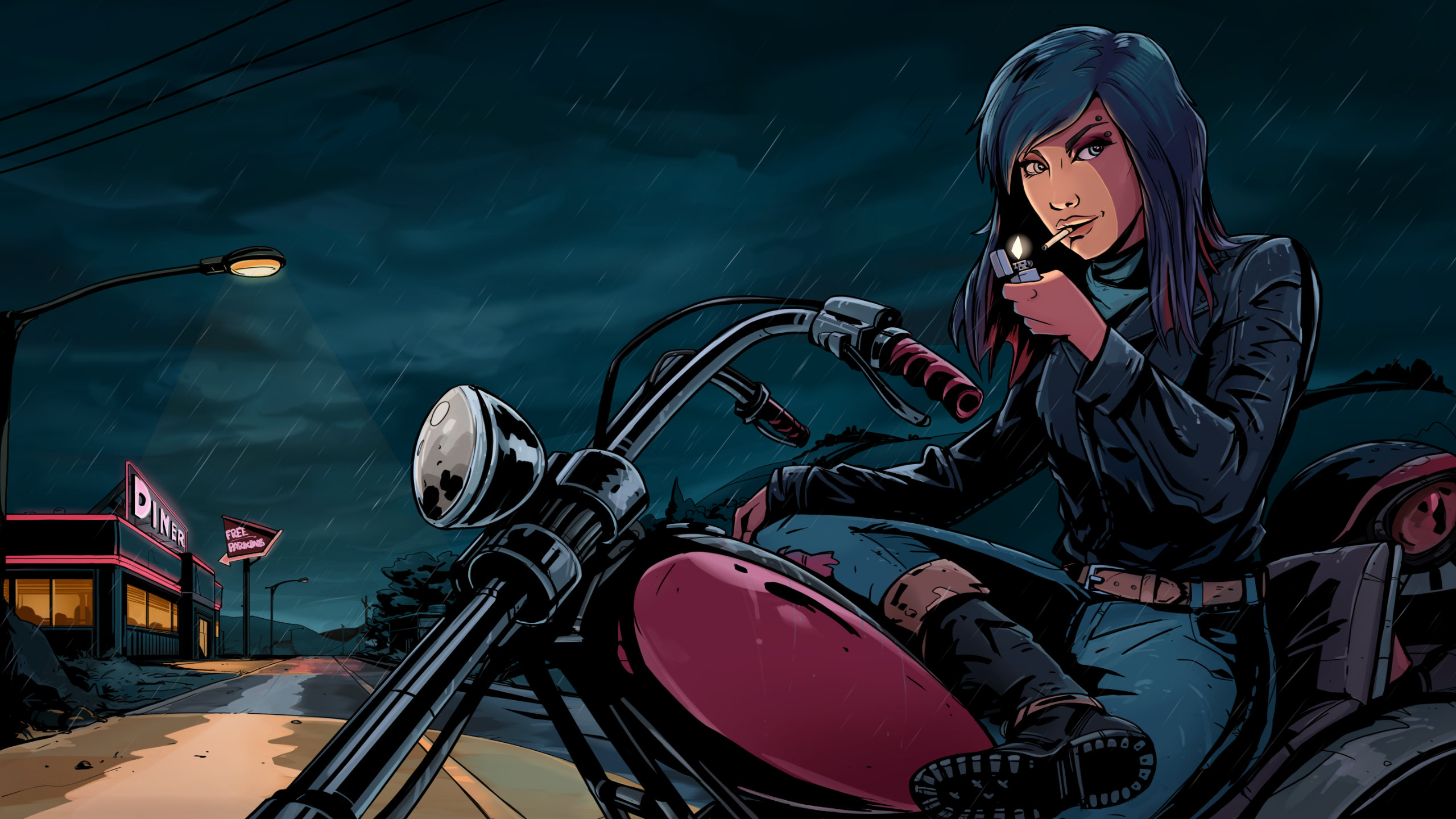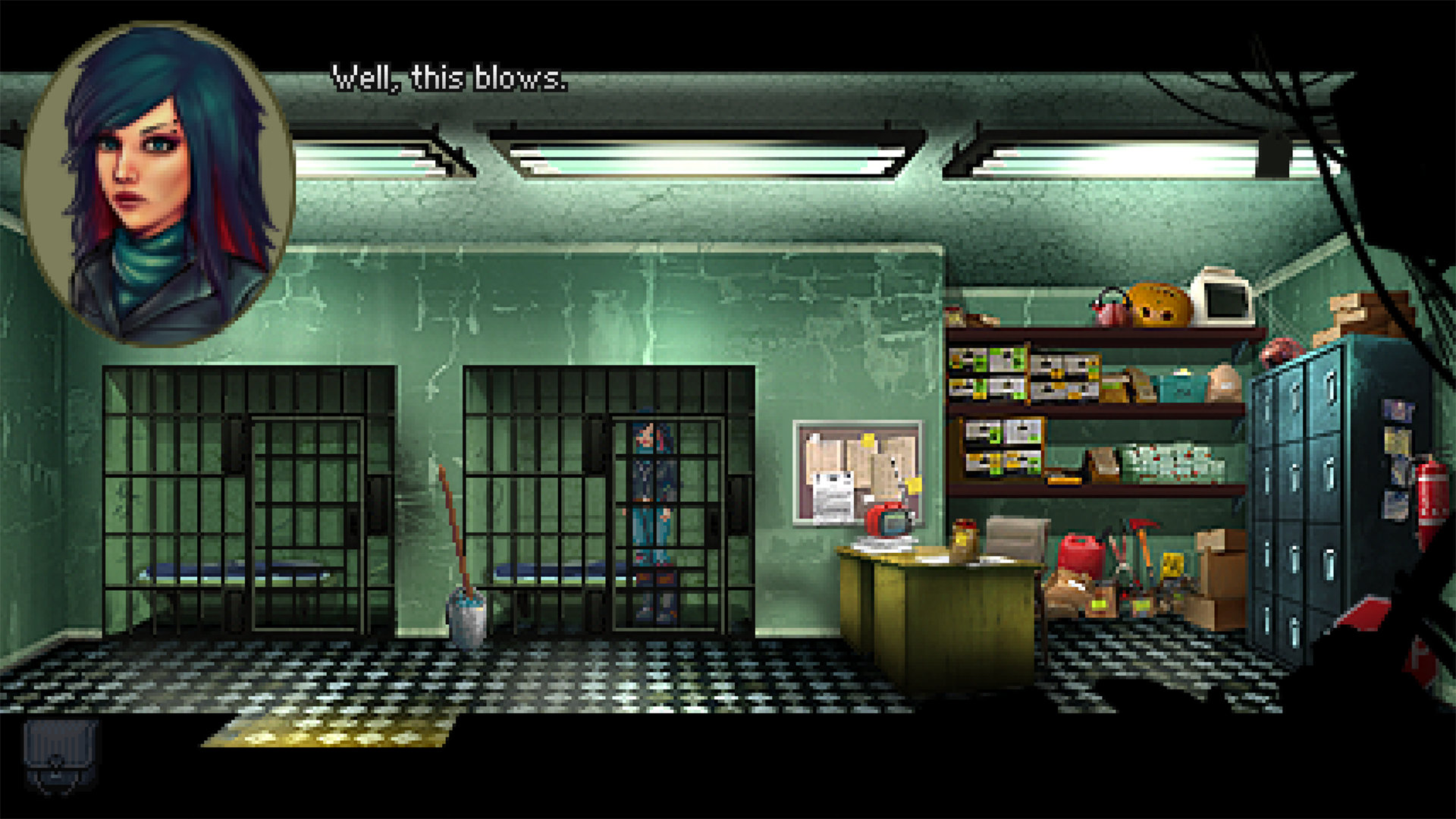An expanded and upgraded release of 2016’s Kathy Rain, featuring an extended storyline, 700+ new lines of dialogue, controller and 16:9 widescreen support, and more.
Related Articles
| Article | Author | Date | Category |
| RPGFan Chapters Exclusive Review: The Art of Point-and-Click Adventure Games, Third Edition | Hilary Andreff | July 15, 2022 | |
| RPGs Coming This Week, 10/25/2021 | Quinton O'Connor | October 25, 2021 | News |
| Kathy Rain: Director’s Cut Enters Town on October 26th | Tyler Trosper | October 21, 2021 | News |
| Get Back On The Katmobile With A New Trailer for Kathy Rain: Director’s Cut | Quinton O'Connor | March 31, 2021 | News |
| Kathy Rain: Director’s Cut Solves the Case This Fall | Tyler Trosper | January 27, 2021 | News |
Podcasts
| Episode | Date |
| Random Encounter 247 – Random Book Club – The Art of Point-and-Click Adventure Games | July 25, 2022 |
| Random Encounter 227 – A Little Slice of the 80s and 90s | November 1, 2021 |
Game Reviews
| Review | Author | Platform | Score |
|---|---|---|---|
| Kathy Rain: Director’s Cut | Jonathan Logan | Microsoft Windows | 78 |



